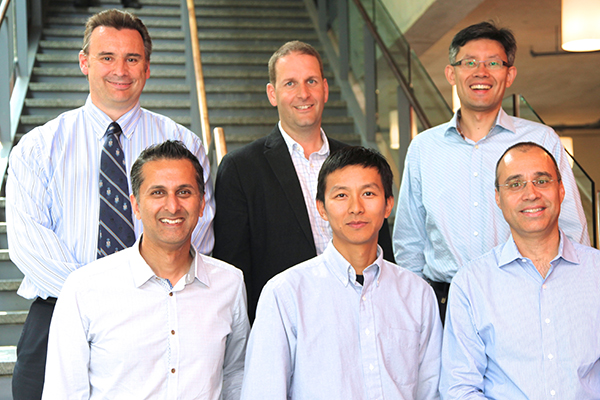Sept. 16, 2013

ChipCare Corporation, a start-up company co-founded by Stewart Aitchison and James Dou of the Edward S. Rogers Sr. Department of Electrical & Computer Engineering, has secured one of the largest-ever angel investments in Canada’s healthcare sector. Phase II financing closed today, with an investment of $2.05 million to support ChipCare’s continuing development and commercialization of its unique handheld blood analyzer over the next three years.
“This technology has the potential to save and improve the lives of millions around the world by bringing state-of-the-art blood testing to patients, instead of asking the sick to travel to labs that are often difficult to reach,” said Dou, ChipCare’s chief technology officer in a release. “The impact on in-the-field HIV diagnostics alone could be revolutionary; this financing is critical to our commercialization roadmap.”
The financing evolved through a uniquely collaborative funding model among Canadian social angel investors, including Maple Leaf Angels, MaRS Innovation and the University of Toronto, with special financing leadership from Grand Challenges Canada and the Government of Canada.
ChipCare’s handheld analyzer has the capacity to transform the way in which point-of-care diagnostics are delivered in the field for both developed and developing world populations. It stands apart from contemporary tools for three reasons:
- Its unique design makes the analyzer significantly less expensive than other similar devices.
- Proprietary technology enables test results that are faster and demonstrably more accurate than existing standards.
- The device enables the potential to run not only one but multiple diagnostics simultaneously.
“To the best of our knowledge, this is at least the second largest healthcare angel investment in Canada’s history – and it might well be the largest by the time the project reaches full maturity,” said Adrian Schauer of Maple Leaf Angels. “The diagnostic potential of this device can hardly be overstated. We are investing heavily in its commercialization because we see the potential to revolutionize bedside testing for many conditions, from HIV and malaria in the developing world, to sepsis, heart disease and cancers here at home.”
ChipCare’s Phase II project plan calls for a three-year development of the device to further refine its functionality, develop a more robust prototype and reduce costs, as part of the move to scale. The innovative financing model supporting this development was made possible, in part, with the leadership of the Government of Canada through Grand Challenges Canada.
Read the original press release from Grand Challenges Canada.
More information:
Marit Mitchell
Senior Communications Officer
The Edward S. Rogers Sr. Department of Electrical & Computer Engineering
416-978-7997; marit.mitchell@utoronto.ca